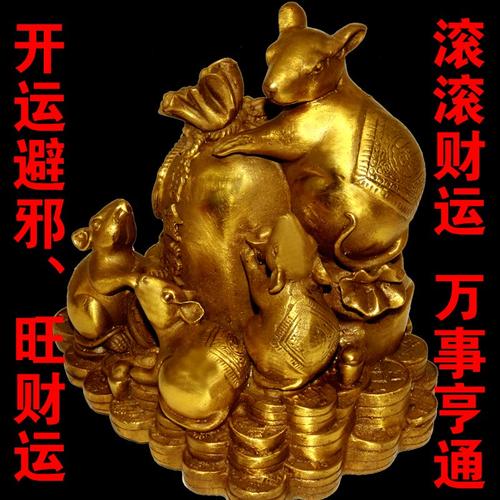开发性金融是什么
 刽子手
刽子手 真夜
真夜
开发性金融是适应制度落后和市场失灵,为维护国家金融安全、增强经济竞争力而出现的一种金融形式,在国际上已有百年历史。从各国的实践看,开发性金融通常为政府所拥有,赋权经营,具有国家信用,用建设制度和开发市场的方法实现政府的发展目标,承担着支持经济发展、投融资体制改革及相关金融市场建设的重要任务。国家开发银行在1994年成立时,国家赋予的职能任务是集中资金支持国家基础设施、基础产业和支柱产业(“两基一支”)的大中型基本建设、技术改造项目及其配套工程建设,并对所投资项目在资金总量和资金结构配置上负有宏观调控职责。在资金短缺的条件下,开发银行负有宏观上防止基建盲目膨胀引发通货膨胀和微观上确保重点项目资金需求两个层次的调控责任。开发银行成立之初,主要是缓解经济发展中的“瓶颈”制约;亚洲金融危机后,注重防范金融风险,配合和扩大投资拉动、结构调整的政策效果。在这个过程中,开发银行立足开发性金融的定位,发挥国家信用的高能量,以融资为载体,通过项目建设,在所及领域推进市场制度建设,弥补制度缺损和市场失灵,实现了项目建设和制度建设的双成功。 坚持开发性金融的业务领域。开发性金融一般不直接进入已经成熟的商业化领域,而是沿着政府路径,从尚不成熟的市场做起,运用国家信用的高能量,通过融资支持项目建设和所涉及的制度建设,弥补制度缺损,实质是政府信用、政府协调下的一种创新。只要存在市场等制度缺损而又有光明市场前景的投融资领域,并能够通过制度建设、整合体制资源取得盈利,就是开发性金融的业务领域。 建立“政府入口、开发性金融孵化、市场出口”的开发性金融机制。开发银行按照公开、透明、公平、公正的原则,通过政府选择项目入口、开发性金融孵化、选择市场出口三个环节,以未来的整体市场空间为依据,以政府协调下的治理结构弥补单个法人治理结构的不足,推动项目建设和制度建设。其中心内容是:开发银行通过与政府及相关部门签订开发性金融合作协议,共建协调高效的融资平台、信用平台。开发性金融机制发挥作用的过程,是广义的经济增长和市场化的孵化过程,是政府、金融机构、企业、市场四方共建信用和体制的过程。 实行投融资民主的治理结构。开发银行立足信贷融资,引进和运用资本市场原理,加强贷款决策的科学化、民主化、社会化,打破行政审批和少数人决策大额贷款的做法,建立电子路演评审制度,有效控制了新增贷款的风险。同时,在财务体制上不断完善政策制订、组织实施、监督检查三权分立的制约机制,提高财务经费分配和支出的透明度,让群众参与预算制定和评议复核,防止腐败的产生。开发银行还借鉴“三讲”教育巡视组的经验,成立党建巡视组,有效解决了总分行信息渠道不畅、党建与业务工作“两张皮”等问题。通过实行民主办行,建立投融资决策民主和财务民主制度,完善内部责任制和群众监督制度等措施,有效防范了银行的风险。 准国债性质的开发性债券和金融的资产管理相结合。开发银行债券具有准国债性质,但资产管理不同于财政和国债的管理,也不同于商业金融的管理,而是以政府协调强化金融资产管理的方式,提高资产质量和资金效益。开发性金融是介于国债和商业银行贷款之间的领域,以政府协调强化金融资产管理的方式来防范风险,把政府协调和金融资产管理相结合,中间有资产管理的巨大空间。 开发性金融的融资优势和政府的组织协调优势相结合。在完全市场化的体制中,政府不直接参与经济运行。但我国正处在体制转轨时期,经济体制必须适应社会主义初级阶段的实际,就是政府和市场要相互结合、相互作用,发挥政府信用的高能量,推动市场建设。近几年,开发银行以融资为杠杆,积极推动政府协调,把政府协调的组织优势用于治理结构建设、法人建设、现金流建设和信用建设,取得了明显成效。 把国家信用和市场业绩相结合。开发银行抓住开发性金融的发展机遇,资产质量不断提高,对项目管理和金融体制现代化方面的积极影响更加显著。到今年三季度末,开发银行的不良贷款率为1.17%,经营业绩进入国际先进水平,实现了国家信用与市场业绩的统一。在当前市场发育不完善的情况下,开发银行从市场和业绩一侧,把不同的目标和利益统一起来,利用融资优势推动政府信用的协调,巩固国家信用,有利于提升公众信心,带动社会信用发展。开发银行不以盈利为唯一目标,而是用建设制度和开发培育市场的方式,在体制资源的整合中保证资产安全和取得盈利。从实践来看,国家信用和市场业绩是能够统一的。 在政府和市场之间发挥桥梁与纽带作用。总结开发银行这些年的工作,就是用融资促进业务领域内的体制建设,通过逐笔融资推进治理结构、法人、现金流和信用四个方面的建设,弥补制度缺损,以优质的资产支持经济发展和结构调整,在整合体制资源中取得盈利。开发银行在企业发展初期的困难和将来的发展之间搭起一座桥梁,用国家信用熨平经济发展的周期波动,有效覆盖和承担单个项目波动的风险,降低成本,加快市场化进程,促进社会主义市场经济体制建设,增强国家经济实力和国际竞争力。在当前我国债券市场发育落后、社会信用缺损的条件下,开发银行利用信贷融资实现了债券的功能,并通过严格监管,保证了资金使用的效果和资源配置的效率。
开发性金融的重要性
 匡坐而弦
匡坐而弦 除日无岁
除日无岁
当前我国经济正处于一个重要关口,实现经济社会全面协调可持续发展,必须解决瓶颈制约市场缺损问题。在瓶颈制约方面,自近年以来我国经济出现了新一轮周期性波动,部分行业和地区投资增长过快,低水平重复建设严重,煤电油运等供求紧张,货币信贷增长过快,贷款结构不合理。为此,党中央、国务院采取了一系列宏观调控措施。这些矛盾从根本上可以归结为经济社会发展需求和金融发展相脱节,融资体制发展落后,市场建设发展落后,使得经济社会得不到统筹发展所必需的融资支持,投资、消费、出口三大因素难以协调高效地发挥作用,瓶颈领域不断涌现。具体说,既有能源交通等物质瓶颈,又有融资体制瓶颈,使“三农”、中小企业、西部开发、东北等老工业基地、县域经济等领域,得不到信贷融资的足够支持。在市场缺损方面,供给瓶颈与制度和市场瓶颈是相连并存的,有供给瓶颈的地方,往往也有制度和市场瓶颈。制度和市场瓶颈不仅使政府难以有效调节区域间、社会成员间的收入分配差距,也是造成企业法人治理结构不健全,社会信用缺失等问题的根本原因。因此,加强制度和市场建设,弥补体制落后和市场失灵,是当前亟待解决的突出问题。制度和市场需要建设,但不能靠自发形成,而要主动地进行建设,需要政府、开发性金融和企业共同推进。西方国家形成发达的市场经济体制经历了盲目、漫长的演进,付出了极高成本和代价,中国不能再走自发演进的老路。中国可以而且必须发挥后发优势,通过自觉主动地建设制度和市场,实现跨越式发展。在制度和市场建设中,开发性金融可以发挥政府与市场间桥梁和纽带的作用。实践证明,在制度不健全市场失灵的情况下,开发性金融通过融资优势与政府组织协调优势相结合,构造融资平台,共同推进信用建设和制度建设,可以帮助政府解决热点问题,在市场上实现政府的发展目标。 弥补市场缺损和市场失灵,从源头上建设高效健全的市场。比如说,开发性金融可以利用自己的政策导向作用,利用自身的资金优势,在贷款领域内,与地方政府和客户之间努力构建信用,建设市场化运作的机制,以弥补市场缺损,打通融资瓶颈,避免盲目投资和重复建设,体现宏观调控政策措施和科学发展观的要求。近年来,开行为把宏观调控的政策措施要求落到实处,以地方当前的经济社会发展状况为基础,考虑未来5到10年增长情况,核定贷款边界,严格控制贷款规模,通过信用评审、债项评审来降低风险,使地方发展规划真正落到有市场融资保障、符合地方经济和财力发展趋势的基础上。这一过程,实际上是一个通过开发性金融,把宏观调控与地方发展有机结合起来的过程,也是一个以市场的方式实现政府目标的过程。这种措施,不仅有效地落实了宏观调控政策,也有效地防范了开发性金融风险。类似的做法,在今后的宏观调控中,仍然具有很大的推广价值。
开发性金融的原理方法
 金画眉
金画眉 人演
人演
包括以下九个方面:坚持以国家信用为基础,以市场业绩为支柱,以建设市场来实现政府目标;坚持建设制度、建设市场的方法;把融资优势和政府组织协调优势相结合,促进政府的力量和市场的力量相互结合和转化;注重国家及政府组织增信;坚持以信用建设为主线,推动治理结构建设、法人建设、现金流建设和信用建设;实行“政府选择项目入口、开发性金融孵化、实现市场出口”的融资机制;具有应对集中大额长期风险的制度优势;实行政府机构债券与金融资产管理方式相结合;建立开发性金融治理结构,接受政府和市场的监督。以国家信用为基础,以市场业绩为支柱,以建设市场来实现政府目标,是开发性金融的核心内容,也是开发性金融对政策性金融的深化和发展。开发性金融坚持不因有国家信用而降低资产质量,也不因有好的市场业绩而丢失国家信用。开发性金融运用国家信用建设制度和市场,不以盈利为首要目的,但必须靠自己的盈利和市场业绩生存,保持资产质量。开发性金融强调市场业绩,并不是为了个体利益和机构部门利益,而是把财力集中用于新的瓶颈领域,实现经济社会发展目标。开发性金融的盈利有利于维护政府信用的市场形象,进一步巩固和增强国家信用,更好地服务于政府的政策意图。
开发性金融的介绍
 猎鲨者
猎鲨者 梅花巾
梅花巾
开发性金融(Development financing)机构有世界银行,亚洲开发银行等。开发性银行的资金主要用于开发和发展。中国的发展,特别是改革开放20多年以来,更离不开世界开发银行和亚洲开发银行的支持与帮助。这让中国获得了巨大的发展,也让中国的老百姓获得了许多实惠,更让世界改变了对中国的看法。开发性金融是实现政府发展目标,弥补体制落后和市场失灵,有助于维护国家经济金融安全,增强竞争力的一种金融形式。
如何理解开发性金融机构这一定位
 焉往
焉往 说失屠羊
说失屠羊
强调国开行要坚持开发性金融机构定位,适应市场化、国际化新形势,充分利用服务国家战略、依托信用支持、市场运作、保本微利的优势,进一步完善开发性金融运作模式,加大对重点领域和薄弱环节的支持力度。国开行要合理界定业务范围,不断完善组织架构和治理结构,明确资金来源支持政策,合理补充资本金,强化资本约束机制,加强内部管控和外部监管,建设成为资本充足、治理规范、内控严密、运营安全、服务优质、资产优良的开发性金融机构。
开发性金融相对其他融资方式,具有哪些优势?
 僧叡
僧叡中国开发性金融促进会的介绍
 困窘织履
困窘织履公司金融具体的研究方向是什么?
 普契尼
普契尼 云飘飘
云飘飘
公司金融具体的研究方向:主要是从公司治理的角度去分析,也就是相关利益者之间的各种关系,比如股东与管理者之间的代理问题,股东与债权人的关系,大股东(控股股东)与小股东之间的关系。从个利益相关者的利益权衡中去分析公司的资本结构、股利政策、现金持有等问题。另外还有学者从法与制度(公司外部环境)去分析公司金融的东西。公司金融的主要课题是,以下以一份公司金融博士课程安排为例:Financial policy: General theories1. Fisher Separation Theorem; Modigliani-Miller propositions; trade-off theory of capital structure2. Basic agency ideas: Debt as a disciplining device; indirect costs of debt financing (risk-shifting, debt overhang)3. Asymmetric information: Debt signaling; signaling with inside equity; financing investment under asymmetric information4. Security design approach to capital structureFinancial policy: Empirical approaches to general theories5. Capital structure: Determinants; trade-off versus pecking order; market timing, inertia; dynamic models6. Financing constraints: Investment-cash flow sensitivityFurther topics (theory and/or empirics):7. Instry equilibrium:- Liquidation values of specialized assets: Shleifer and Vishny (1992), Pulvino (1998)- Equity holder – debt holder conflicts: Maksimovic and Zechner (1991)- Empirical facts: Almazan and Molina (2005)8. Efficiency of multi-divisional firms: Internal capital markets theories and the diversification discount- Stein (1997), Scharfstein and Stein (2000), Rajan, Servaes, and Zingales (2000)- Schoar (2002), Maksimovic and Phillips (2002), Chevalier (2004), Graham, Lemmon, and Wolf (2002), others9. Initial public offerings: Puzzles, theories, current research10. Financial intermediation; Costs and benefits of informed finance: Rajan (1992)11. Lending channel and supply-side effects in corporate financing: Holmstrom and Tirole (1997)12. Information from stock prices to cash flows13. Stock market and managerial incentives: Earnings manipulation14. Labor market and managerial incentives: Herding15. Investor protection, international corporate finance 现在一部分前沿的公司金融研究是和资产定价以及宏观经济学联系在一起的: 比如研究公司融资与资产价格的关系,比如研究在商业周期波动中公司融资模式的变动等等,以及流动性问题的宏观影响。当然这些领域也不是现在才开始的,但直到最近仍然有重要的文章出现。
李明贤的研究内容
 李孟夏
李孟夏 天志
天志
1.农村金融组织体系建设研究,主要研究我国农村金融服务的供给和需求,当前我国农村金融体系中存在的问题以及如何根据农村金融服务的供求来创建多元化的农村金融新体系。2.金融发展的理论,主要研究金融发展理论及其对经济发展的作用,并对其在我国农村金融和经济发展中的运用进行研究。3.农村财政,主要研究农村财政资金的筹集、运用和农村公共产品的供给问题,研究农村税费改革问题及如何减轻农民负担问题,研究乡村政府负债问题等。 1、主编《货币银行学》教材,国防科技大学出版社,2001年12月。2、 主编《西方经济学》,湖南大学出版社,1998年10月。 1、技术进步与农业增长方式的转变,国防科技大学出版社,2001年8月,排名第二。2、 构我国农村金融体系研究,湖南科技出版社出版,2003年6月,独立。 1、给农村民间金融适度的发展空间,调研世界(国家级),2003年第2期,独立2、全面建设农村小康社会问题探讨,农业现代化研究(国家级),2003年第4期,独立。3、农村税费改革的实证研究,中国农经青年学者年会论文集,中国农业出版社2003年9月,第一作者。4、农村信用社不良贷款处置模式探讨,湖南农业大学学报(省级),2003年第4期,第一作者。5、农村信用社开展小额信贷业务的可持续性探讨,金融教学与研究(省级),2003年第1期,独立6、新形势下我国农业政策性银行发展探讨,新疆农垦经济(省级),2003年第2期,独立。7、我国农村金融体系的制度经济学分析,湖南农业大学学报(省级),2002年第四期,独立。8、论提高我国农村金融体系的效率,农业经济问题(国家级),2002年第七期,独立。9、金融发展理论及我国农村金融发展的对策,农业现代化研究(国家级),2002年第1期,独立。10、在我国农村建立民营金融机构研究,湖南农业大学学报(省级),2002年第2期,第一。11、重构我国农村金融体系的思考,财经理论与实践(国家级),2001年第5期,独立。12、农村土地利用的制度经济学思考,农业经济问题(国家级),2001年第4期,独立。13、论我国农村信用社经营的“垄断”,湖南社会科学(省级),2001年第3 期,独立。14、西部开发的技术进步对策研究,湖南农业大学学报(省级)2001年第2期,独立。15、我国农村信用社改革的路径依赖,山东农业大学学报(省级),2002年第1期,独立。16、深化我国农业科研体系改革研究,2001年中国农业技术经济研究会论文集,气象出版社,2001年8月,独立。17、重建我国农村合作金融研究,科技导报(国家级),2001年第12期,第 一。中国人民大学报刊复印资料全文转载。18、开拓农村市场的制约因素及对策,陕西农业科学(省级),2000年第10期,独立。19、农民增收的制约因素及对策,华中农业大学学报(省级),2000年第4期,独立。20、论技术进步促进农业增长方式转变的机理,湖南农业大学学报(省级)2000年第3期,被中国人民大学报刊复印资料全文转载,第一。21、本科生毕业论文指导刍议,高等农业教育(国家级),2002年9月,第二。22、当前中国银企信用关系恶化原因分析,湖南农业大学学报(省级),2002年第3期,第二。23、新形势下外资的利用与民营企业融资,山东农业大学学报(省级),2002年第4期,第二。24、规范农村信用秩序探讨,获湖南省社科联、省外国经济学会2002年度优秀论文二等奖,2002年12月,独立。25、论农村经济发展的制度创新,农业经济问题(国家级),2000年第4 期,独立。26、合作经济组织是我国农业产业化的最好形式,农业技术经济(国家级),1999年第2期,独立,被中国人民大学报刊复印资料全文转载。27、乡镇企业改制为股份合作企业的思考,农业经济问题(国家级),1999年第5期,第一作者,被中国人民大学报刊复印资料全文转载。28、集约型农业增长方式的技术体系构建,湖南农业大学学报(省级),1999年第4期,第三作者。29、在我国建立存款保险制度的思考,湖南农业大学学报(省级),1999年社科专刊,独立。30、农业产业化的利益协调机制探讨,中国青年农经学者年会论文集,湖南地图出版社,1999年7月,第一作者。31、实现农业增长方式转变的科技进步调整方向探讨,农业技术经济(国家级),1999年第4期,第二作者。32、粮食流通体制改革政策运行效果分析,陕西农业科学(省级),1999年第12期,被中国人民大学报刊复印资料全文转载,独立。33、农业增长方式转变的金融对策,农业技术经济(国家级)1998年第2期,独立。34、新形势下农产品卖难的成因及对策分析,农业现代化研究(国家级),1998年第4期,独立。35、我国国食品安全的制约因素及对策,中国青年农经学者年会论文集,广西民族出版社1998年7月,独立。 1、主持国家自然科学基金科研课题:“重构我国农村金融组织体系研究”,12.8万,进展顺利,2002,1-2004,12。2、主持湖南省社会科学基金科研课题:“我国农村金融体系建设问题研究”,0.6万,进展顺利,2001,8-2003,12。3、主持湖南省教育厅科研课题:“湖南省农村全面小康社会建设问题研究”,2.5万,即将结题,2003,12-2005,12。4、参加湖南省科技厅软科学科研课题“农业可持续发展的技术进步对策研究”,3万,排名第二,2003,6-2003,12,顺利结题。5、参加湖南省社科基金科研课题“湖南省农产品比较优势研究”,排名第二,1万,2002,1-2003,12。顺利结题。6、主持校教改课题“经济管理类专业本科生毕业论文写作全过程指导研究”,主持人,0.5万,2001,1-2003,12,顺利结题。7、参加国家自然科学基金课题:“农业增长方式转变的技术发展方向与科技政策调整问题研究”,8万,排名第三,1999,1-2001,12,被国家自然科学基金委评为良好。8、参加校教改课题: 农业经济管理专业经济学类和管理学类课程体系及内容研究,0.5万,排名第二,2 001,1-2003,12,即将结题。9、主持省教育厅科研课题:湖南省农村股份合作经济研究,0.3万,1997,8-1999,12,主持人,顺利结题。10、参加省教育厅科研课题:农业可持续发展的支持系统研究,0.3万,1998,8-2000,12,排名第二,已顺利结题。11、参加省计委招标课题:湖南省农业和农村发展的“十五”规划和2015年远景规划,0.8万,1999,5-1999,12,排名名第三,已顺利结题。

 40004-98986
40004-98986





